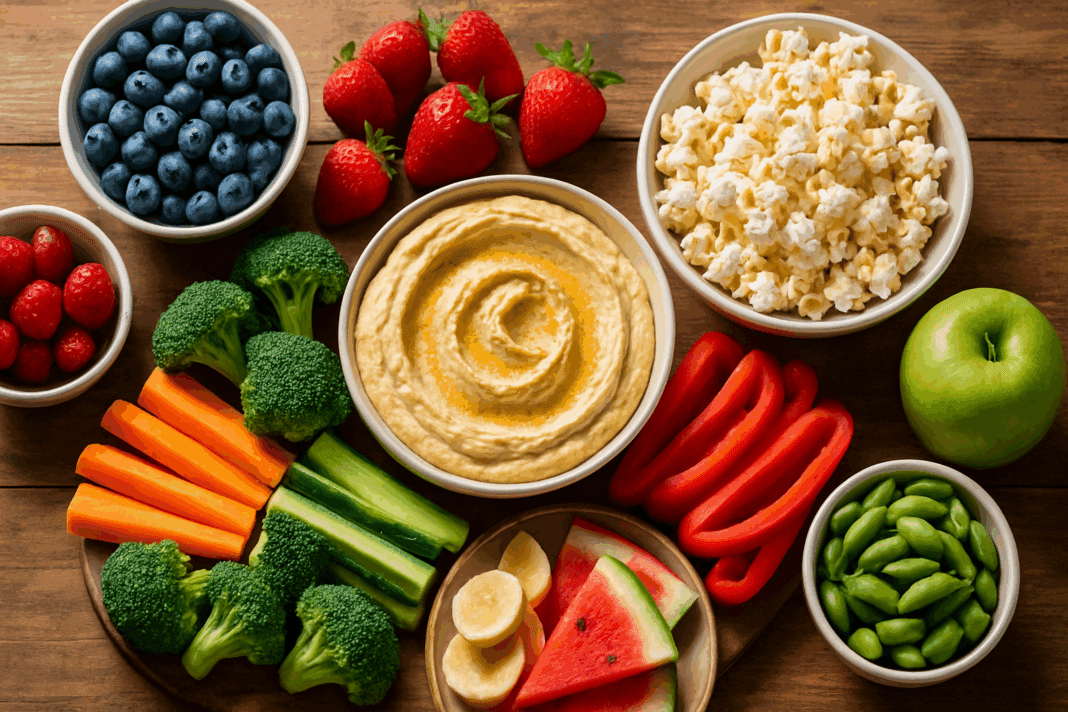In recent years, the growing embrace of plant-based lifestyles has reshaped modern dietary paradigms, emphasizing not only environmental sustainability but also optimal health outcomes. Within this evolving landscape, a particular challenge persists for individuals striving to maintain a plant-based diet while also aiming for low calorie and low fat intake: smart snacking. For those navigating the complexities of whole-food, plant-based nutrition, the search for snacks that are simultaneously satisfying, nutrient-dense, and aligned with health goals can often feel daunting. However, a wealth of research and expert consensus affirms that it is entirely possible to indulge in flavorful, low calorie vegan snacks and low fat vegan snacks without compromising on nutritional integrity.
You may also like: Healthy Plant-Based Dinners Made Easy: Best Whole Food Plant-Based Recipes for Beginners and Beyond
Snacking is often unfairly maligned as a dietary misstep, yet when approached with mindfulness and informed choices, it can play a pivotal role in regulating energy levels, stabilizing blood sugar, and supporting sustained satiety throughout the day. For plant-based eaters, this opportunity is particularly meaningful. With a focus on unprocessed, nutrient-rich foods, snacking becomes an avenue for incorporating more fiber, antioxidants, and phytonutrients into the daily diet. Moreover, selecting low calorie vegan snacks that are also low in fat not only aids in weight management but also aligns with cardioprotective dietary strategies supported by a wealth of clinical evidence.
Understanding the Nutritional Foundation of Smart Plant-Based Snacking
To fully appreciate the value of intelligent snacking on a plant-based diet, it is essential to understand the underlying nutritional framework. Whole-food, plant-based eating emphasizes the consumption of vegetables, fruits, legumes, whole grains, nuts, and seeds while minimizing or eliminating processed foods and animal-derived ingredients. Within this structure, calorie density becomes a critical concept. Calorie density refers to the number of calories in a given volume or weight of food. By selecting foods with lower calorie density—typically those rich in water and fiber—individuals can consume larger portions while keeping overall caloric intake in check.
Low calorie vegan snacks typically capitalize on this principle, drawing from high-volume, low-energy foods such as raw vegetables, air-popped popcorn, and fresh fruit. These options provide bulk and satiety without tipping the caloric scale. Similarly, low fat vegan snacks focus on minimizing dietary fats, particularly added oils and processed fats, which are often calorie-dense and nutrient-poor. While healthy fats from sources like avocados and nuts are not inherently problematic, moderating their intake is crucial for individuals with specific cardiovascular goals or weight management priorities.
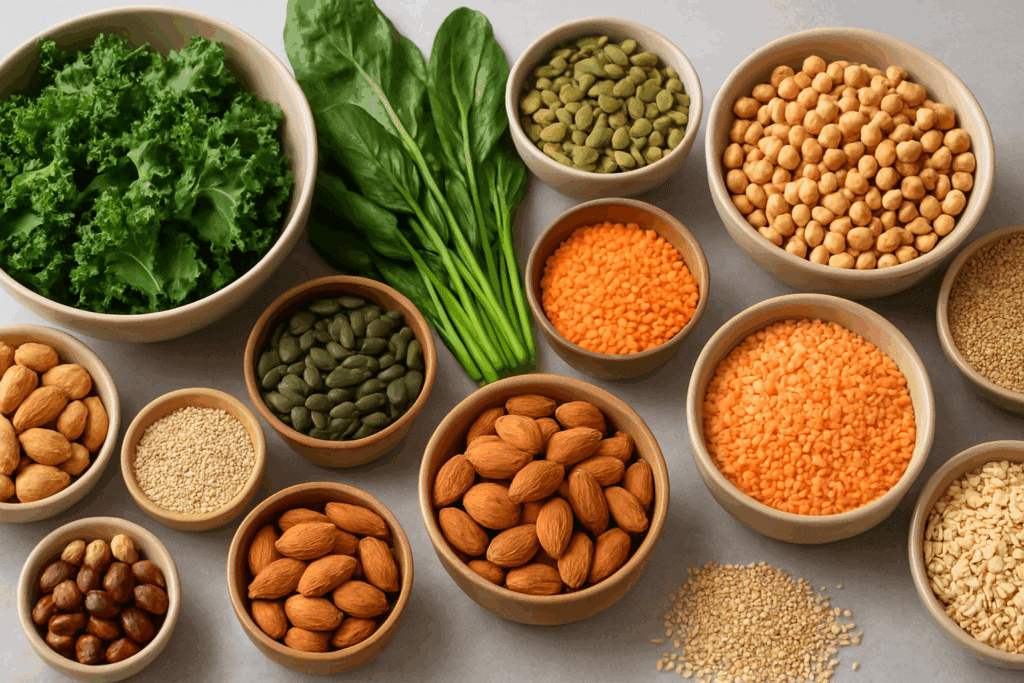
The Science Behind Low Calorie and Low Fat Diets in Plant-Based Nutrition
Scientific literature consistently supports the health benefits of a low fat, plant-based diet, particularly in the context of cardiovascular disease, type 2 diabetes, and metabolic syndrome. Dr. Dean Ornish’s landmark studies, for example, have demonstrated the potential for low fat plant-based diets to not only prevent but also reverse heart disease. These outcomes are closely tied to dietary patterns rich in fiber, antioxidants, and phytochemicals—all abundant in minimally processed plant foods.
Additionally, low calorie vegan snacks play a meaningful role in blood sugar management and appetite control. High-fiber plant foods slow the absorption of glucose, thereby reducing insulin spikes and preventing energy crashes. This is particularly beneficial for individuals with insulin resistance or those looking to maintain stable energy throughout the day. The strategic use of such snacks can also curb the tendency to overconsume during main meals by maintaining satiety and preventing extreme hunger.
It is important to note, however, that low fat does not equate to fat-free. Fat is a vital macronutrient, essential for hormone production, nutrient absorption, and cellular function. The goal of low fat vegan snacks is not to eliminate fat altogether but to reduce excessive intake, particularly from sources that offer little nutritional value. By emphasizing whole food sources and avoiding processed oils, plant-based eaters can strike a balance that supports both wellness and enjoyment.
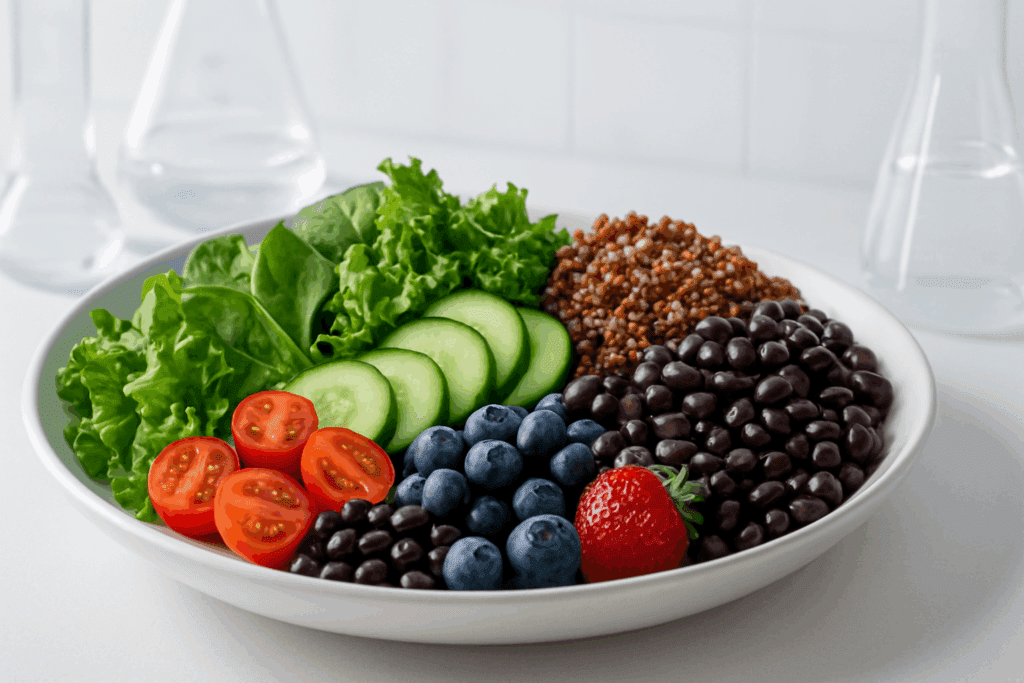
Debunking Common Myths About Low Fat and Low Calorie Vegan Snacks
A prevalent misconception is that low calorie or low fat snacks lack flavor, texture, or satisfaction. In reality, the culinary diversity of plant-based foods allows for a wide range of enjoyable snacking experiences that meet these criteria without sacrificing health benefits. Seasoning, roasting, and the use of natural flavors such as citrus, herbs, and spices can transform even the simplest ingredients into crave-worthy bites.
Another widespread myth suggests that all fats should be eliminated for optimal health. This oversimplified narrative overlooks the complexity of dietary fats and their diverse biological functions. Omega-3 fatty acids, found in flaxseeds, chia seeds, and walnuts, are essential for brain and heart health. Thus, while reducing overall fat intake may be beneficial in specific contexts, complete exclusion of fat is neither necessary nor advisable.
Finally, there is a perception that plant-based snacking lacks protein, leading to concerns about muscle maintenance or satiety. However, many low calorie vegan snacks—such as roasted chickpeas, edamame, or lentil-based crackers—offer substantial protein content, often accompanied by beneficial fiber and micronutrients. When selected mindfully, these snacks can contribute meaningfully to daily protein requirements.
The Role of Fiber and Volume in Promoting Satiety and Nutrient Density
One of the key advantages of plant-based snacking lies in the natural abundance of dietary fiber within unprocessed plant foods. Fiber not only supports digestive health but also plays a critical role in promoting feelings of fullness, which can help prevent overeating and support long-term weight maintenance. Low calorie vegan snacks rich in fiber are particularly effective at extending satiety without contributing to excessive caloric intake.
High-fiber vegetables such as carrots, celery, and bell peppers are ideal snack choices, especially when paired with low fat hummus or a bean-based dip. Likewise, fruits like apples, berries, and pears provide a naturally sweet option with minimal calorie density. These foods are not only satisfying but also support a healthy gut microbiome, which has been increasingly recognized for its influence on immune function, mood regulation, and metabolic health.
The volume of food consumed also significantly impacts satiety. Research has shown that individuals tend to consume a consistent volume of food daily. By choosing snacks that are high in volume but low in calories—such as vegetable soups, salads, or air-popped popcorn—plant-based eaters can achieve fullness without surpassing caloric goals. This principle is especially important for those seeking sustainable weight loss or maintenance strategies.
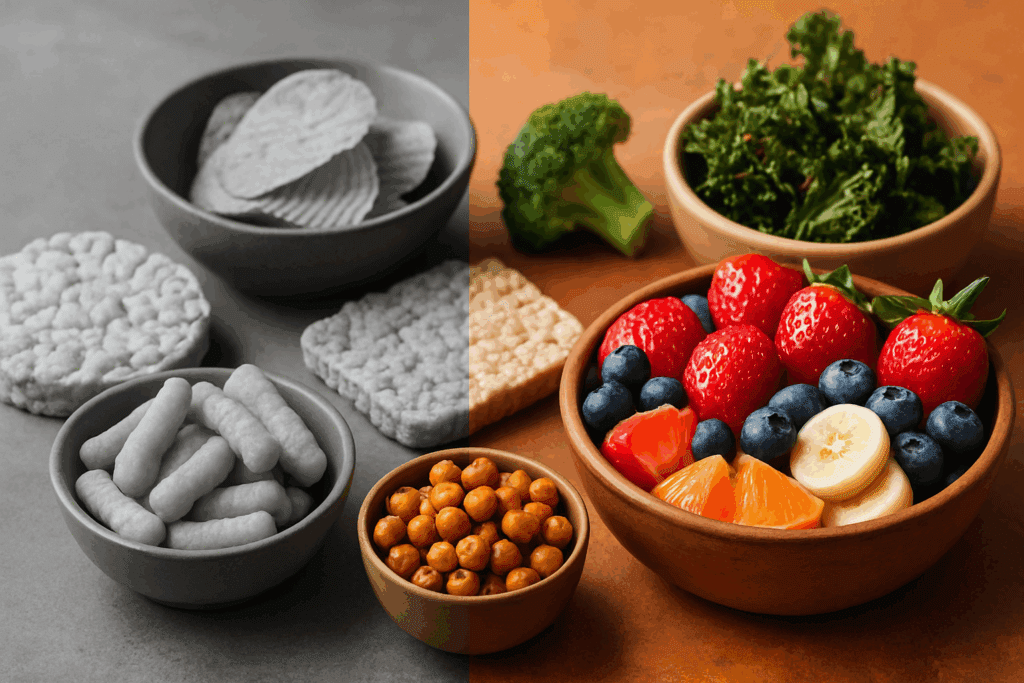
Expert-Recommended Low Calorie Vegan Snacks for Optimal Health
Nutrition professionals consistently advocate for snacks that combine fiber, protein, and natural flavors to create a satisfying and health-promoting experience. One widely recommended option is a small serving of homemade trail mix using air-dried fruits and unsalted, roasted chickpeas. This combination provides a balance of sweet and savory flavors while delivering a blend of fiber, plant-based protein, and essential minerals.
Vegetable-based wraps made with lettuce or collard greens and filled with shredded carrots, hummus, and cucumber slices are another expert favorite. These wraps are visually appealing, easy to prepare, and boast an impressive nutrient profile with very few calories and minimal fat. For a warming alternative, broth-based vegetable soup with lentils or barley offers both comfort and nutritional richness, making it a suitable snack even in cooler months.
Another underappreciated option is baked kale chips seasoned with garlic and lemon juice. These crispy snacks mimic the texture of traditional chips but are significantly lower in both fat and calories. Moreover, they provide a concentrated source of vitamins A, C, and K, along with important antioxidants. When prepared without oil, they serve as a stellar example of how low calorie vegan snacks can rival their higher-fat counterparts in both flavor and satisfaction.
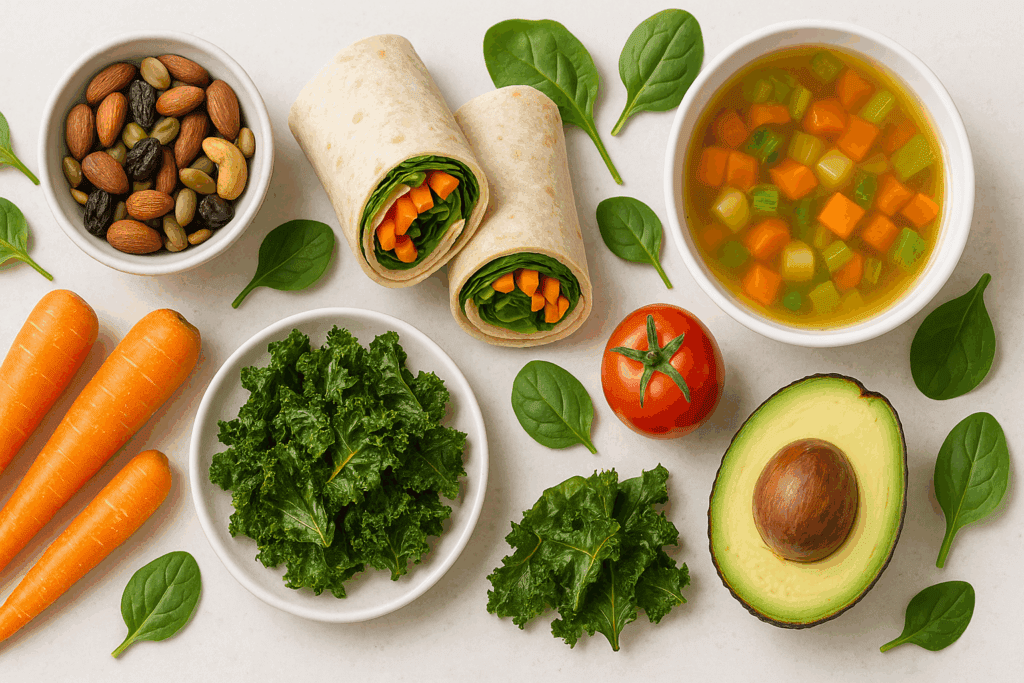
Balancing Convenience and Nutrition in On-the-Go Snacking
Modern lifestyles often necessitate quick and portable snack options, making convenience a key consideration for plant-based eaters. Fortunately, the availability of pre-packaged low fat vegan snacks has expanded significantly in recent years. Items such as freeze-dried fruit, unsweetened applesauce, and whole-grain rice cakes offer easy, shelf-stable alternatives that do not compromise on health.
Still, not all packaged snacks are created equal. Reading ingredient labels carefully is essential to identify products that are free from added oils, sugars, and preservatives. Choosing snacks that contain whole food ingredients—such as lentils, oats, or brown rice—ensures better nutritional quality. Additionally, prepping snacks at home, such as roasted edamame or homemade date bars, allows for greater control over ingredient choices and portion sizes.
For those with demanding schedules, batch-preparing snacks for the week can be a practical strategy. Sliced vegetables stored in airtight containers, portioned servings of unsalted nuts, and jars of homemade salsa or hummus make it easier to choose healthful options when hunger strikes. With a bit of planning, even the busiest individuals can enjoy nourishing, low calorie vegan snacks without resorting to convenience foods that compromise their goals.
Incorporating Variety to Prevent Snack Fatigue and Ensure Nutrient Diversity
One of the primary pitfalls of restrictive snacking habits is the potential for dietary monotony, which can lead to decreased satisfaction and eventual deviation from healthful eating patterns. Introducing variety into snack choices not only maintains interest but also enhances nutrient diversity, ensuring that the body receives a broad spectrum of vitamins, minerals, and phytonutrients.
Experimenting with different legumes, grains, and vegetables can yield creative and delicious outcomes. For instance, mashed black beans with lime and cumin served on jicama slices offer a refreshing twist on traditional dips. Similarly, rice paper rolls filled with shredded cabbage, tofu, and cilantro deliver texture, color, and a rich nutrient profile, all while remaining low in fat and calories.
Seasonal produce also provides an opportunity to diversify snacks while aligning with natural growing cycles. In the summer, chilled cucumber slices with vinegar and dill may be especially refreshing, whereas in the winter, warm roasted root vegetables or steamed edamame might be more appealing. This seasonal rotation not only supports local agriculture but also encourages a more intuitive, satisfying approach to eating.
How Mindful Eating Enhances the Benefits of Smart Vegan Snacking
Beyond the nutritional composition of snacks, the practice of mindful eating can significantly amplify the benefits of a plant-based snacking routine. Mindful eating involves paying attention to the sensory experience of food—its taste, texture, aroma, and even sound—while also tuning into internal hunger and satiety cues. This practice fosters a more intentional relationship with food, reducing the likelihood of mindless eating and overconsumption.
When consuming low calorie vegan snacks, slowing down and savoring each bite can enhance satisfaction, even with smaller portions. Mindful eating also encourages individuals to assess their motivations for snacking, distinguishing between physical hunger and emotional triggers. Over time, this awareness can support healthier eating patterns and more balanced decision-making.
Incorporating rituals around snacking, such as plating food instead of eating directly from packages or taking a moment to express gratitude before eating, can further deepen the connection between nourishment and mindfulness. These small shifts contribute to a more holistic approach to health, integrating nutritional science with psychological well-being.
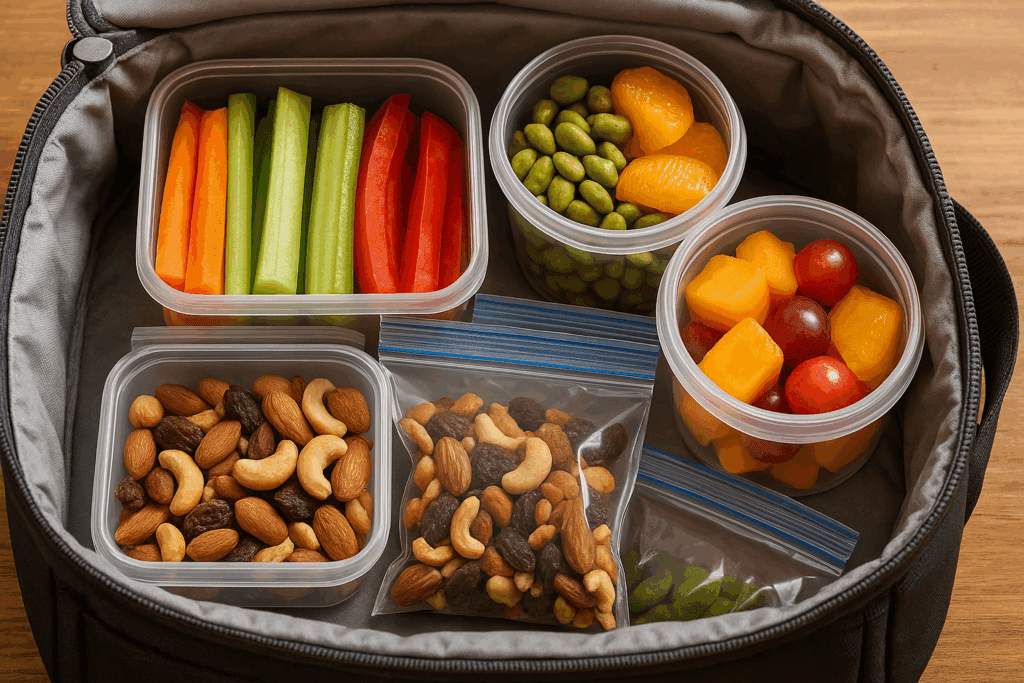
Frequently Asked Questions: Smart Snacking for Plant-Based Eaters
1. Can low calorie vegan snacks support muscle growth and recovery after workouts?
Absolutely. While traditionally associated with animal protein, muscle repair can be fully supported on a vegan diet with the right approach. Low calorie vegan snacks that include plant-based protein sources such as edamame, lentil crisps, or protein-fortified oat bars can provide the necessary amino acids post-exercise. For recovery, combining carbohydrates with protein is key, so pairing a banana with a small portion of hemp protein powder in a smoothie can enhance muscle glycogen replenishment while remaining low in fat. These kinds of low fat vegan snacks not only help reduce inflammation post-exercise but also offer fiber and antioxidants that aid in overall recovery.
2. How do low calorie vegan snacks impact mental focus and productivity?
Surprisingly, the benefits of plant-based snacking extend beyond physical health and into cognitive performance. Choosing low calorie vegan snacks that are rich in complex carbohydrates—such as air-popped popcorn or whole fruit—can provide a steady release of glucose to fuel brain function. Unlike processed sugary snacks, which can lead to energy crashes, these options help maintain concentration throughout long work sessions. Low fat vegan snacks with omega-3 sources, such as chia pudding or ground flaxseed on rice cakes, support cognitive health over time. This kind of mindful snacking can even reduce reliance on caffeine by stabilizing energy more naturally.
3. Are there cultural or traditional vegan snacks that are naturally low in fat and calories?
Yes, many global cuisines offer traditional snacks that align perfectly with plant-based, low fat lifestyles. For instance, Japanese edamame (young soybeans) are high in protein, low in fat, and often served steamed with a sprinkle of sea salt. Middle Eastern cuisine offers baba ganoush, a roasted eggplant dip that’s flavorful and nutrient-rich without being high in fat. Similarly, South Indian snacks like spiced puffed rice (murmura) or steamed idlis made from fermented rice and lentils serve as naturally low calorie vegan snacks with impressive cultural roots. Exploring these global snacks not only broadens your palate but also enriches your diet with diverse micronutrients.
4. How can low fat vegan snacks help manage hormonal health, especially in women?
Snacking wisely can be a powerful tool in supporting hormone balance, particularly during periods of fluctuation such as menstruation or menopause. Low fat vegan snacks that are rich in phytoestrogens—plant compounds that mimic estrogen—like flaxseed crackers or hummus with soy-based tempeh sticks can help regulate estrogen levels naturally. Additionally, the fiber content in many of these snacks supports the excretion of excess hormones through the digestive tract, which is crucial for hormonal equilibrium. Stable blood sugar levels—maintained through low calorie vegan snacks made from whole grains or legumes—can reduce insulin spikes, which are closely tied to hormonal disruptions. Incorporating magnesium-rich foods like pumpkin seeds also supports mood and relaxation during hormonal transitions.
5. What are some underrated pantry staples that can be turned into low calorie vegan snacks?
Pantry staples often go unnoticed as snack powerhouses, yet they can be easily transformed into healthful bites. Canned beans, for example, can be air-fried or roasted with herbs to create crunchy, satisfying low fat vegan snacks. Rolled oats, often reserved for breakfast, can be mixed with mashed bananas and cinnamon, then baked into portable, oil-free snack bites. Even unsweetened applesauce can be used as a dip for rice cakes or as a base for light, sugar-free pudding. When approached creatively, these common ingredients can consistently yield low calorie vegan snacks that are both budget-friendly and nutrient-dense.
6. How does the gut microbiome benefit from low fat vegan snacks?
Recent studies have underscored the deep connection between plant-based eating and gut health, and snacking is a key component. Low fat vegan snacks high in prebiotic fibers, such as jicama sticks or green bananas, feed beneficial gut bacteria and support microbiome diversity. This diversity is associated with improved immune function, reduced inflammation, and even better mood stability. Fermented low calorie vegan snacks, like sauerkraut on whole grain toast or kimchi with rice crackers, introduce live probiotics that can complement the prebiotic effect. Over time, consistent intake of fiber-rich, minimally processed snacks helps cultivate a resilient and balanced gut ecosystem.
7. Can low calorie vegan snacks be used for intermittent fasting or time-restricted eating?
Yes, plant-based snacks can be effectively used within eating windows to support intermittent fasting protocols. Choosing low calorie vegan snacks during refeeding periods allows for volume and satiety without overshooting daily caloric goals. A bowl of fruit with chia seeds or a raw vegetable platter with white bean dip are satisfying, nourishing options that won’t cause blood sugar spikes. Low fat vegan snacks also tend to digest more efficiently, making them suitable for gentle re-entry after a fasting period. For individuals practicing time-restricted eating, preparing nutrient-rich, low calorie snacks in advance can support compliance and reduce the temptation of high-fat convenience foods.
8. How do emotional eating patterns interact with low fat vegan snacking habits?
Emotional eating is a common concern, and the simplicity of low fat vegan snacks can offer both practical and psychological support. The act of preparing a beautiful fruit bowl or arranging colorful vegetables with a tahini-free dip encourages mindful engagement with food. Because many low calorie vegan snacks are unprocessed and rich in fiber, they naturally moderate the dopamine response associated with overindulgence in sugary or fatty snacks. This helps prevent the cycle of guilt and shame often tied to emotional eating. Furthermore, snacks that include adaptogens—like ashwagandha mixed into coconut-free energy balls—can provide added support for stress resilience without increasing fat or calorie intake.
9. Are there innovations in food technology that make low calorie vegan snacks more accessible?
The evolution of plant-based food technology is making it easier than ever to access healthful, ready-to-eat snacks. Freeze-drying and air-puffing techniques are preserving the nutritional value of fruits, vegetables, and legumes while extending shelf life and reducing the need for preservatives. Companies are now developing low fat vegan snacks using aquafaba-based formulations, which replicate creaminess without added oils. High-pressure processing (HPP) is another innovation that allows raw snacks to maintain enzyme activity while ensuring food safety. These technological advances are especially valuable for individuals seeking portable, low calorie vegan snacks that still deliver freshness, flavor, and nutritional impact.
10. What are some sustainable practices tied to choosing low calorie and low fat vegan snacks?
Sustainable eating isn’t just about cutting out animal products—it’s also about minimizing resource-intensive ingredients and packaging. Low calorie vegan snacks that utilize local, seasonal produce help reduce food miles and support regional agriculture. Snacks made from upcycled ingredients, such as pulp crackers or banana peel chutney, divert waste and create a more circular food economy. Choosing bulk-friendly low fat vegan snacks like dry-roasted legumes or homemade granola also cuts down on packaging waste. When you opt for snacks that are minimally processed and plant-based, you’re not just choosing health—you’re actively participating in a more resilient, environmentally conscious food system.
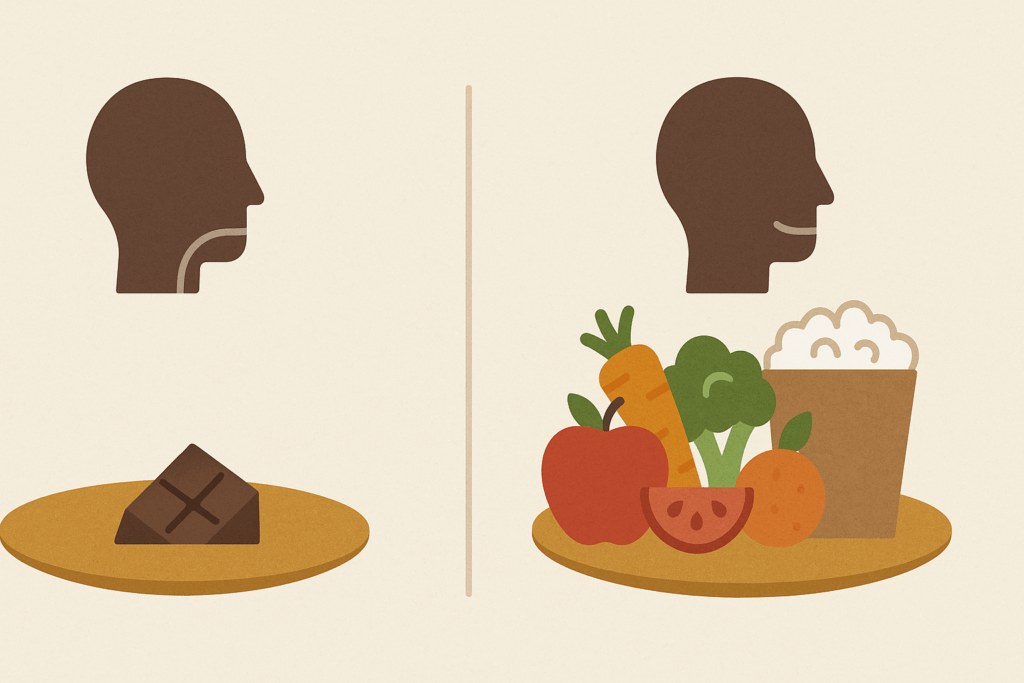
Conclusion: Elevating Wellness with Low Calorie and Low Fat Vegan Snacks
In the pursuit of vibrant health and sustainable living, plant-based eaters are uniquely positioned to harness the power of smart snacking. Through intentional choices, it is entirely possible to enjoy low calorie vegan snacks and low fat vegan snacks that are as nourishing as they are enjoyable. Grounded in scientific evidence and guided by the principles of whole-food, plant-based nutrition, these snacks offer more than mere sustenance—they provide a meaningful opportunity to support metabolic health, weight management, and overall well-being.
By emphasizing fiber-rich ingredients, embracing culinary creativity, and applying mindfulness to mealtime practices, individuals can transform snacking into a cornerstone of their health journey. As nutrition experts continue to advocate for diets rich in unprocessed plant foods, the importance of smart, balanced snacking cannot be overstated. Whether at home, on the go, or amidst a demanding schedule, the integration of low calorie and low fat vegan snacks into daily routines empowers individuals to meet their nutritional goals with confidence and satisfaction.
Ultimately, smart plant-based snacking is not merely about reducing calories or fat—it is about enhancing the quality of each bite and deepening one’s connection to food, health, and the planet. In doing so, we redefine what it means to snack well: with intention, knowledge, and an enduring commitment to vitality.
Further Reading:
A Variety of Healthy, Low Calorie Snacks You Might Enjoy
The 10 Best Healthy Snacks for Weight Loss, According to a Dietitian

